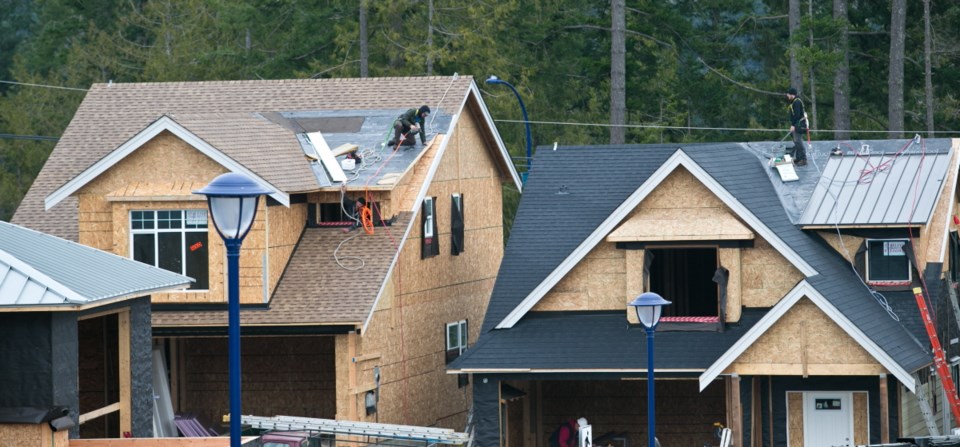Housing prices for Greater Victoria and the country as a whole are expected to continue climbing this year as ongoing low interest rates delay any cooling.
That’s the word from a Royal LePage survey released Wednesday, which said the price of an average home in Canada rose by 9.2 per cent in the second quarter of this year compared with the same months in 2015. That increase is the highest national year-over-year gain in five years.
Continuing low interest rates will “further delay the cyclical cooling of Canada’s hottest real estate markets, originally forecasted for the second half of 2016,” the company said.
As well, national housing prices climbed by 2.3 per cent in June from May, marking the largest increase that month since the Teranet–National Bank National Composite House Price Index was introduced in 1999.
Price increases among major communities were led by a 4.4 per cent rise in Greater Victoria, the Teranet-National Bank report said.
The capital region is a seller’s market these days.
The median price of a two-storey home rose by 19.4 per cent to $736,856 in the second quarter compared with the same quarter in 2015, Royal LePage said.
The median price of a bungalow (typically considered as a low-height building) moved down slightly to $500,279, the company said. A median is the middle point among a list of data, in this case housing prices.
Bill Ethier, president and managing director for Royal LePage Coast Capital Realty in Victoria, said all types of detached homes are in demand in the capital region.
“If it is a single-family dwelling here, it’s gone. And if it is in the core, it’s gone faster than out in the Western Communities, that’s just the way it is. And if it has a suite in it, ‘Oh my gosh.’ ”
The capital region’s market is a “little quieter right now,” due to low inventory. Also, sales typically wane in the heat of the summer.
Even so, multiple offers are still coming in for houses, he said.
Houses often go on the market mid-week and offers are accepted the following Sunday or Monday.
Let’s say a house is priced at $699,000. That property could well attract a flurry of offers in the $750,000 to $775,000 range. But if a desperate buyer or a Vancouver resident with deep pockets enters the mix, the selling price might leap to $850,000, Ethier said.
This kind of situation can prompt neighbours to put their house up for sale, expecting to get $850,000 as well. Ethier cautions that might not happen unless the same types of buyers come along, which is not always the case.
To help transactions go more smoothly, Ethier suggests sellers pay for an oil tank scan — if there might have been a tank on the property — and make that information available to buyers. This means there will be one fewer thing to do when finalizing agreements.
In such a competitive environment, buyers can make their offers more attractive by simplifying matters, he said.
When getting pre-approved for a mortgage, ensure that everything required, such as credit checks, has been carried out beforehand to reduce time required to finalize financing.
Do not buy a major item or finance anything else until you take possession, because that might jeopardize a credit rating, he said.
If potential buyers do inspections ahead of time, that reduces the subject-to clauses, again making an offer more appealing. If your offer includes a clause subject to an inspection, try to line that up the next morning at 9 a.m., he said.



